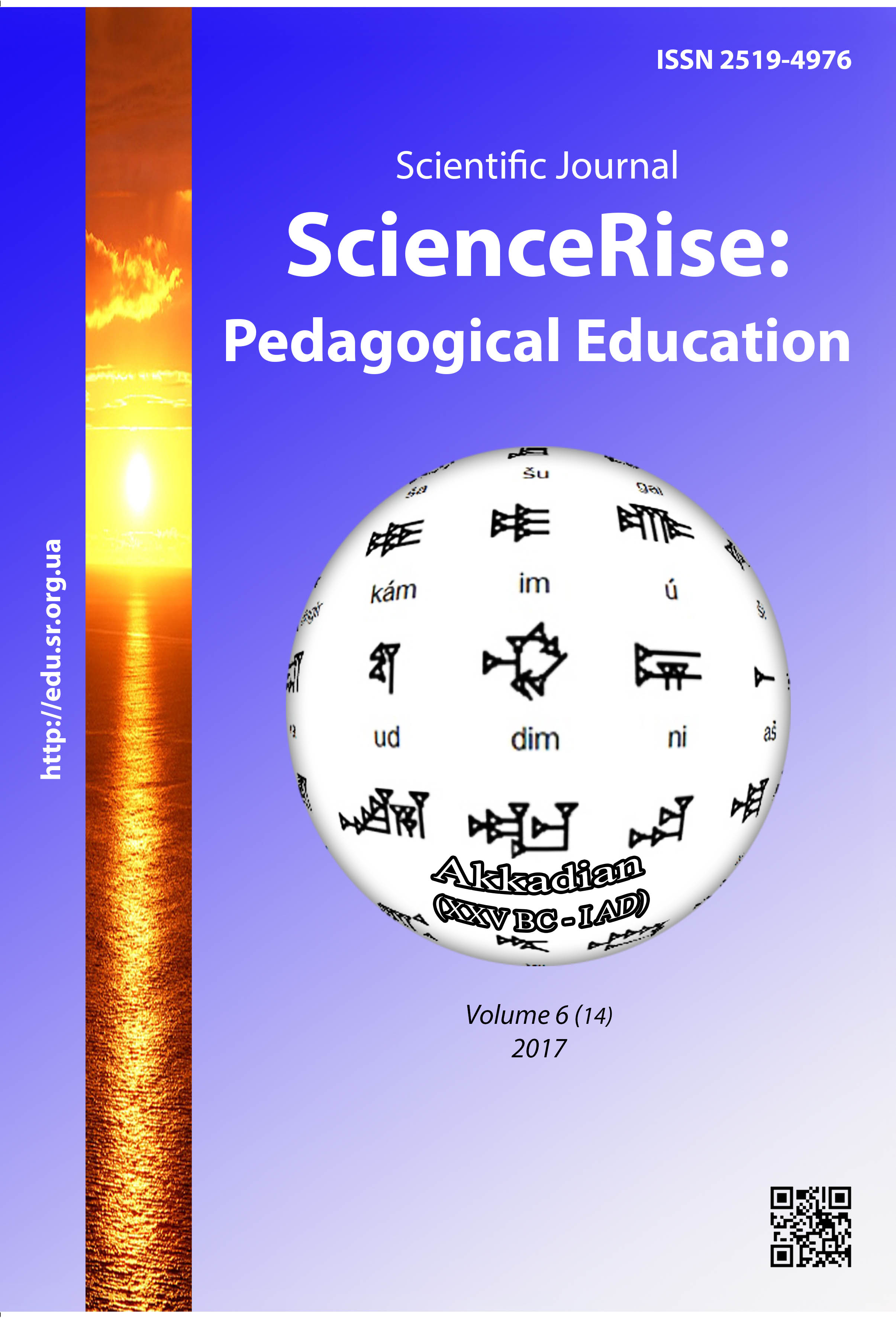Analysis of using software while training students of computer specialties
DOI:
https://doi.org/10.15587/2519-4984.2017.105518Keywords:
non-licensable software, software means, software product, study, copyrightAbstract
The study pays attention to the use of licensable and non-licensable software, the understanding of responsibility for using non-licensable software as copyright violation and a cause of amenability according to the Civil code of Ukraine about “Copyright objects” was studied.
We presented the generalized analysis of the use of non-licensable software in HEIs at training students of computer specialties. It is obvious that students of technical HEIs use software means as an object and subject of the study.
To study the state of using non-licensable software the interrogation was realized among students of several HEIs. The data of it testified that practically each third student observed non-licensable graphic redactor Adobe Photoshop, Corel Draw, AutoCAD, ArchiCAD and Artlantis, installed on learning computers.
The interrogation results allowed to make the conclusions and to outline the prospects of further using software products in HEIs; the alternative use of licensable software means was offered. The possibilities of HEI cooperation with Microsoft, namely Office 365 for Education were described on the own example
References
- Legal Services Online. Available at: http://yurist-online.com/ukr/uslugi/yuristam/kodeks/003/433.php
- The independent auditor. Available at: http://n-auditor.com.ua/uk/component/na_archive/514?view=material
- RBC Ukraine. Available at: https://www.rbc.ua/rus/lnews/dolya-piratskogo-ukraine-sostavlyaet-82-issledovanie-1464600229.html
- Code of Ukraine on Administrative Offences (1984). Verkhovna Rada URSR, No. 8073-X. Available at: http://zakon2.rada.gov.ua/laws/show/80731-10/page3
- Androshchuk, G. O., Petrenko, S. A. (2013). Legal protection of software (computer programs and databases). Kyiv: SRI IV NAPrNU, 300.
- Filyk, N. V., Omelchenko, G. V. (2016). A computer program as an object of copyright: problems of legal protection. Law Gazette. Civil and labor law, 2 (39), 130–137.
- Borisova, L. V., Logvynenko, N. F. (2013). Legal principles of information security. Kharkiv: HNUVS, 211.
- Avdeev, G. K. (2015). Traces of crimes in the sphere of information technologies: how to identify. Research. The issue of combating crime, 30, 88–97.
- Pisanets, K. K., Chubukov, A. Y. (2016). The economic effect of the termination of counterfeit software. Technology and design. Economy, 1 (18), 1–7.
- Dmytryshyn, V. S. (2002). Legalization and effective use of software in Ukraine. Intellectual Property, 10, 36.
- Pichkurova, Z. V. (2009). Problems of software in Ukraine in the context of international experience. Economy. Collected Works, 28.
- Gerasimenko, I. V. (2016). Creation of the virtual educational space of the university on the basis of office 365. Problems of Informatization. Cherkasy: ChTTU, 3.
- Gerasimenko, I. V. (2016). Experience in using Office 365 for universities. Information technologies in the educational process in 2016. Chernigov: CHOIPPO named after K. D. Ushinsky, 38–40. Available at: https://drive.google.com/file/d/0B1dIQ60kF_ccYWVObDhYWHMycUk/view
- Microsoft Office. Available at: https://www.microsoft.com/uk-ua/
Downloads
Published
How to Cite
Issue
Section
License
Copyright (c) 2017 Yuriy Tryus, Inna Herasymenko, Lidia Zhurba

This work is licensed under a Creative Commons Attribution 4.0 International License.
Our journal abides by the Creative Commons CC BY copyright rights and permissions for open access journals.
Authors, who are published in this journal, agree to the following conditions:
1. The authors reserve the right to authorship of the work and pass the first publication right of this work to the journal under the terms of a Creative Commons CC BY, which allows others to freely distribute the published research with the obligatory reference to the authors of the original work and the first publication of the work in this journal.
2. The authors have the right to conclude separate supplement agreements that relate to non-exclusive work distribution in the form in which it has been published by the journal (for example, to upload the work to the online storage of the journal or publish it as part of a monograph), provided that the reference to the first publication of the work in this journal is included.







